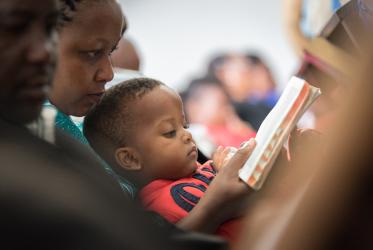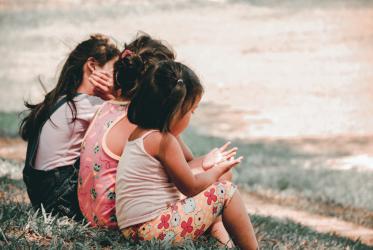The celebrations aren’t only by the nuclear family, but by the extended family and in some cases by the community as well. Indeed, as the Psalmist says in chapter 127:3, “Children are a gift from the Lord; they are a reward from him.” They are therefore meant to be loved, cherished and nurtured in the ways of the Lord with the church playing both an integral and pivotal role to this end.
However, after the celebrations, children in most African cultures are brought up in very strict setups which in some instances limit their own development. Corporal punishment is often administered, mainly anchoring on Proverbs 13:24, with sometimes fatal consequences. Children usually don’t have any say in how the household is run, as their role is to follow what the parents say regardless of how they as children feel about some of those decisions.
Even at school, children are told at an early age to obey instructions and not to question their elders notwithstanding counsel from Colossians 3:21 that exhorts parents not to provoke their children lest they become discouraged. The school and home therefore become spaces which children sometimes resent and the church must offer safety and sanctuary. Through the Churches’ Commitments to Children (commitment 2A and B), the World Council of Churches has put in place a foundational springboard from which churches can further develop through advocacy the agency of children in the society at large, also promoting their participation in church activities.
Children require both support and an audience as they are inquisitive beings. At 12, Jesus was already debating with church elders, wanting to have a deeper understanding of the word. As the child’s mind develops, so does eagerness to understand surroundings. This could sometimes unfortunately also include questioning how things are done and why they are done in a certain way.
As the children of today are exposed to more information through technology, their mind and grasping of issues is also developing faster. Around the world, children even today have shown that their voice is important. Greta Thunberg has championed climate issues and Malala Yousafzai nearly died championing girls’ education.
From 1963, every year on 25 May, the African continent commemorates Africa Day. This is an important day for the whole of Africa, meant to symbolise African unity. Since 1991, on 16 June, Africa celebrates International Day of the African Child in memory of the Soweto uprising. In Soweto, South Africa, thousands of black schoolchildren took to the streets in 1976, lead by Hector Pieterson and his group of brave, valiant and courageous students in a march more than a half-mile long, to protest the inferior quality of their education and to demand their right to be taught in their own language.
Unfortunately, the state came down hard on the protesters and the students were gunned down. The agency of children was sadly and brutally quashed then and it should be our collective endeavour to ensure that we don’t quash the agency of children today. Not only are children the future, they are also the present, and their voices must be heard at all times so that we can have a prosperous world. As Jesus sums it up nicely in Matthew 19:14, "Let the little children come to me, and do not hinder them, for the kingdom of heaven belongs to such as these."








